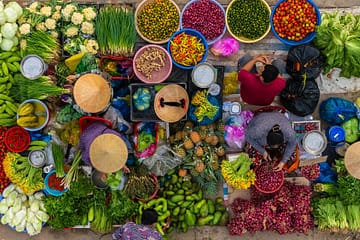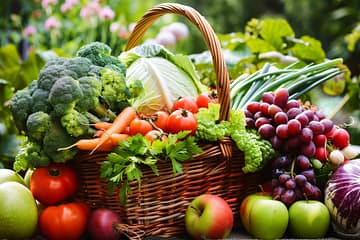1. Introduction
This pioneering Whole Foods Market has marked its name in the history of the natural and organic food industry. Being nourished by people and the planet itself, Whole Foods Market has had consistently high standards, sustainable practices, and community support at the heart of all that it does.

2. Founding and Early History
In fact, the first store in Austin, Texas called Whole Foods Market was opened in September 1980, when John Mackey and Renée Lawson Hardy, owners of Safeway, merged with Craig Weller and Mark Skiles of Clarksville Natural Grocery, to enter into joint collaboration for a wider selection of natural foods to start Whole Foods Market for future growth.
3. Expansion and Acquisitions
The ’80s and ’90s expanded the scope and horizon of Whole Foods Market through the acquisitions of regional natural food chains such as Wellspring Grocery, Bread & Circus, Mrs. Gooch’s, Fresh Fields, Bread of Life, Merchant of Vino, and Harry’s Farmers Market. With national acquisitions, Whole Foods’ presence flourished, therefore adding even more diversity to its product offerings.
4. International Growth
In the early 2000s, Whole Foods Market began concentrating on international expansion. It first entered Canada in 2002 and then bought Fresh & Wild in the U.K. in 2004, firmly extending its expansion plans beyond U.S. borders.
5. Acquisition by Amazon
In 2017, Amazon acquired Whole Foods Market for over $13 billion and placed it under the expansive umbrella of the e-commerce juggernaut. It was primarily added to the grocery chain for convenience of distribution and increased online footprint of Whole Foods Market.
6. Business Model and Product Offerings
Whole Foods Market is an establishment that provides high-quality organic and natural products and operates on a business model. The organization forbids over 550 ingredients that are found in other grocery stores. Whole Foods’ products include organics, meat and seafood that are responsibly sourced, and groceries health-focused.
7. Sustainability Initiatives
Whole Foods Market sustains as a core value with sustainability initiatives ranging from waste reduction to several other measures that have reduced carbon footprints within an organization: Waste Diverting: About 70% of all store and operational waste from waste basins is diverted at Whole Foods Market and their recycling programs keep up at 99% for all stores in 2023.
- Organic and regenerative goods: Over 41000 organic products and 154 certified-adopted regenerative ones are available at Whole Foods Market, benefiting sustainable agricultural practices.
- Packaging initiatives: Whole Foods Market could eliminate all disposable plastic grocery bags by 2008 as their innovative plastic usage reduction.
8. Community Engagement
Whole Foods Market is passionately involved in the community through various programs:
- Civic Giving: Direct the resources of Whole Foods Market toward local nonprofit organizations that cultivate people and planet, providing them with tools to tend to community needs.
- Nourishing Our Neighborhoods: Our initiative to feed our communities also includes donations of refrigerated vans to local food rescue organizations so they can consolidate efforts to triage food for needy persons.
- Foundations: The foundations of Whole Foods Market—Whole Planet Foundation, Whole Cities Foundation, and Whole Kids Foundation—make funding available through microloan schemes and donor networks and provide educational material for schools.
9. Recent Developments
Whole Foods Market is ever innovating and changing with the market trends.
- Whole Foods Market is developing smaller stores for urban dwelling convenience-seeking intenders, such as the mini-market in New York City called “Daily Shop.”
- Early in 2025, workers at one of the Whole Foods Market locations in Philadelphia voted to unionize, not only because such a move would be historic but also because it would be the first union to form in the wholly owned subsidiary of Amazon in the company’s history.
- In its predictions for food trends in 2025, Whole Foods Market said there would be an increase in interest in sourdough products, plant-based ingredients from the sea, and sustainable packaging solutions.
10. Conclusion
From its humble beginning in Austin with one store, Whole Foods Market has grown into an international leader in natural and organic foods; therefore, in its very legacy, the company encapsulates the values of quality, sustainability, and community. Entirely in keeping with those values, Whole Foods Market remains a benchmark and a major innovator in the grocery industry today.



0 Comments